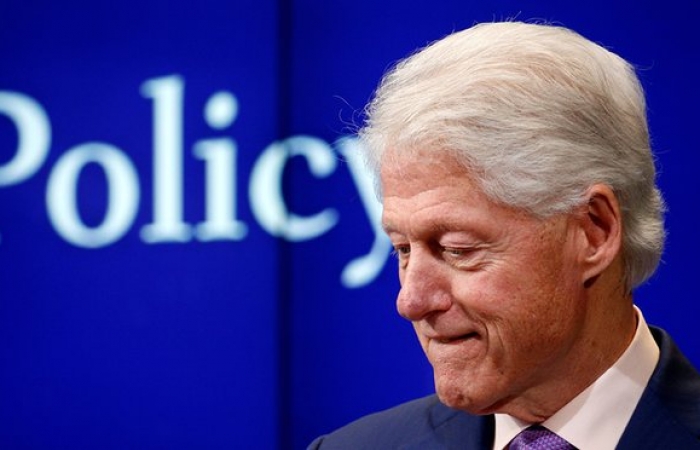Clinton, speaking with NBC in an interview with aired Monday, defended himself from recent criticism about his handling of his affair with Lewinsky in 1995. The response, which comes amid a public reckoning and national conversation about equality that the treatment of women in the workplace, at times grew defensive, with Clinton stating that "a lot of the facts have been conveniently omitted to make the story work."
When asked if he owed Lewinsky an apology, Clinton said, "No, I do not -- I have never talked to her. But I did say publicly on more than one occasion that I was sorry. That's very different. The apology was public."
Clinton did tell an audience at the National Prayer Breakfast in 1998 that he had "sinned," adding that it was "important to me that everybody who has been hurt know that the sorrow I feel is genuine -- first and most important, my family, also my friends, my staff, my Cabinet, Monica Lewinsky and her family, and the American people."
Democrats had wondered how Clinton, once a hot commodity on the campaign trail, would take on questions about the #MeToo movement and his history. And his answer on Monday, said one top Democrat, who requested anonymity to speak candidly, showed why having him stump for a candidate is far too risky.
"Now campaigns have answered the question about how he is going to answer those questions," the Democrat said, "and you just can't risk that."
Democrats across the country cringed at the answer, with those tasked with running campaigns to get Democrats elected in 2018 taking note of how the former President answered the question because, should he campaign for them this cycle, they know he would be asked again.
Two Democrats working in red states echoed that the interview is worrisome for campaigns looking to book the former President but added that his issues on the campaign trail also stem from the fact that Hillary Clinton, his wife, handily lost red states two years ago.
"It might even have less to do with getting asked about Monica Lewinsky and more to do with how badly Hillary Clinton was beaten in all of our states in 2016," the Democrat said, adding that he doesn't "know of anyone who is planning on bring him in anyway."
Another Democrat working on a red-state campaign said that the exchange "adds to" his problems as a surrogate, but that his issues are "much bigger than that."
"The calculation is that you don't even ask them because there is no excitement around them," the Democrat said. "Period. There is nothing they can say in your state that can advance the cause."
Vulnerable Democrats in red states like Claire McCaskill in Missouri, Heidi Heitkamp in North Dakota and Joe Donnelly in Indiana have been trying to keep their races local, hoping to distance themselves from the national Democratic brand and burnish their personal brands in states that are heavily Republican.
Bringing in national surrogates, no matter how famous, complicate that effort and allow Republicans to link candidates to each and every statement the surrogate had made.
For years, because of his reputation as a tireless campaigner who enjoys few things more than giving a stump speech and working the room afterward, Clinton was seen as a must-get surrogate. During the 2012 election, he was credited with boosting President Barack Obama's campaign with a lengthy, but detailed, nominating speech at the Democratic National Convention that laid out why the President should be reelected.
Since then, though, his standing as a surrogate has waned, despite his time on the campaign trail in 2016.
Operatives close to the former president insist he will campaign for Democrats in 2018 and has been fielding calls from candidates eager for him to stump for them. Additionally, these Clinton operatives say the former president has talked with Democrats about strategy and messaging that may work against President Donald Trump and the Republican party.
Clinton, though, has yet to do a public event for a 2018 race. And when asked whether answers like the one he gave on Monday will impact his 2018 role, a Clinton adviser dodged the question.
"That's for campaigns to decide," the operative said.
More about: BillClinton
















































